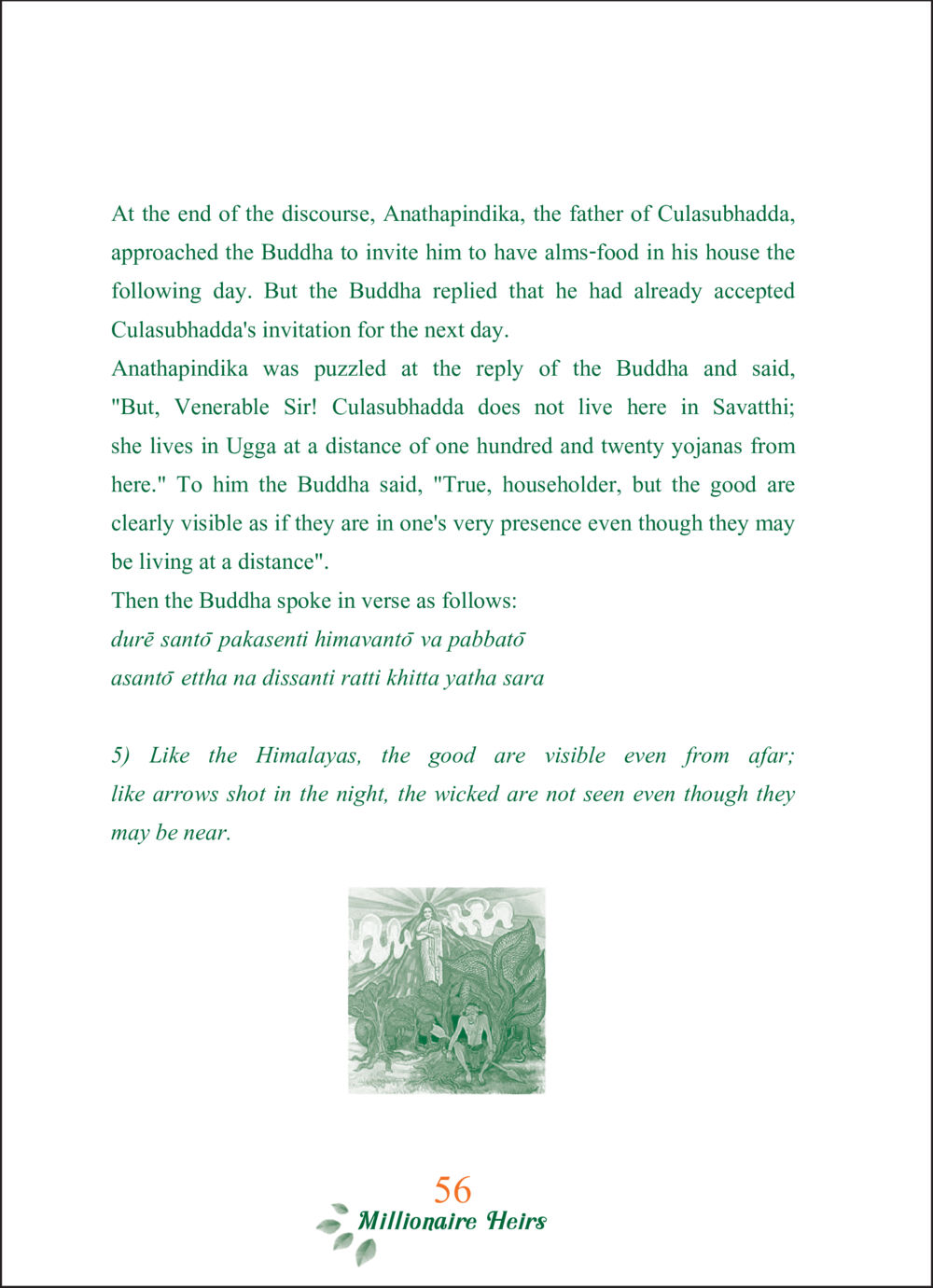The Good and the Wicked: A Buddha's Discourse : หน้า 58/114
ทายาทเศรษฐี Millionaire Heirs (ฉบับ ๒ ภาษา) : หน้า 58/114 Exploration of a discourse between Anathapindika and the Buddha on the visibility of the good and wicked despite physical distance.
2 ครั้ง

สรุปเนื้อหา
In a profound dialogue, Anathapindika invites the Buddha for alms, but the Buddha declines, stating a prior commitment to Culasubbhadda. Confused, Anathapindika points out the geographical distance. The Buddha emphasizes that the good can be felt from afar, akin to the Himalayas, while the wicked remain unseen, even close by. This teaching reflects the perception of virtue beyond physical presence, highlighting moral clarity. The verses draw a poignant comparison between the visibility of good and the obscurity of evil, reinforcing ethical understanding. For more wisdom, visit dmc.tv.
หัวข้อประเด็น
-Buddha's teachings
-virtue and morality
-community teachings
-distance and presence
-moral clarity
ข้อความต้นฉบับในหน้า
At the end of the discourse, Anathapindika, the father of Culasubbhadda, approached the Buddha to invite him to have alms-food in his house the following day. But the Buddha replied that he had already accepted Culasubbhadda's invitation for the next day.
Anathapindika was puzzled at the reply of the Buddha and said, "But, Venerable Sir! Culasubbhadda does not live here in Savatthi; she lives in Ugga at a distance of one hundred and twenty yojanas from here." To him the Buddha said, "True, householder, but the good are clearly visible as if they are in one's very presence even though they may be living at a distance".
Then the Buddha spoke in verse as follows:
dure sánto pakasenti himavanto va pabbatò
asanto ettha na dissanti ratti khitta yatha sara
5) Like the Himalayas, the good are visible even from afar;
like arrows shot in the night, the wicked are not seen even though they may be near.
(There is an image and below it the text:)
56 *Millionaire Heirs*
หน้าหนังสือทั้งหมด
หนังสือที่เกี่ยวข้อง
Load More


















































































































